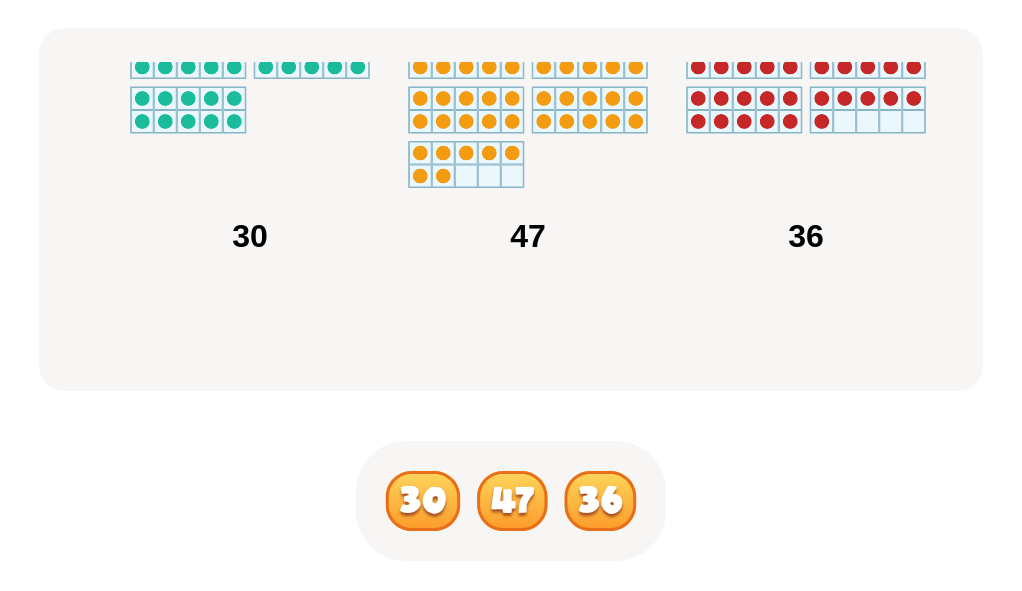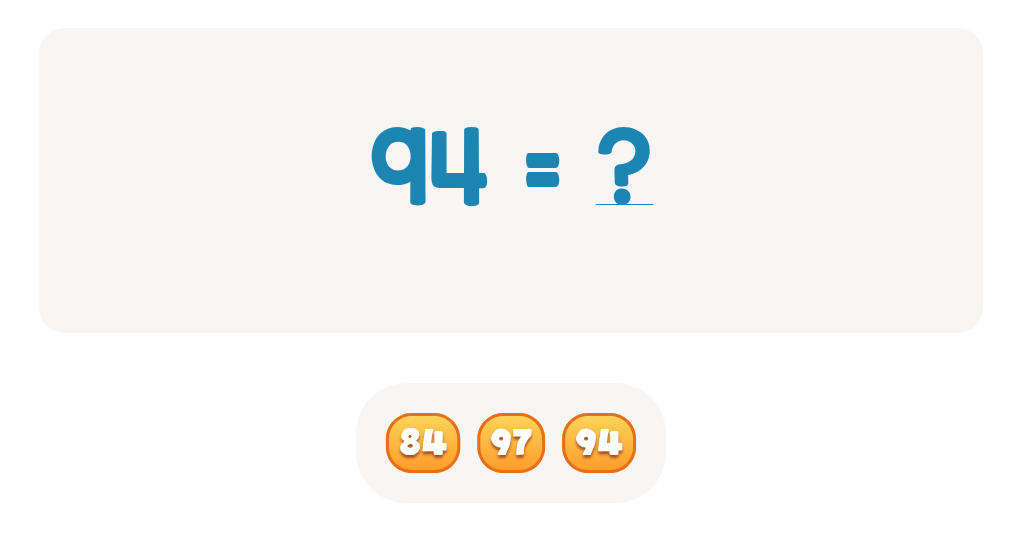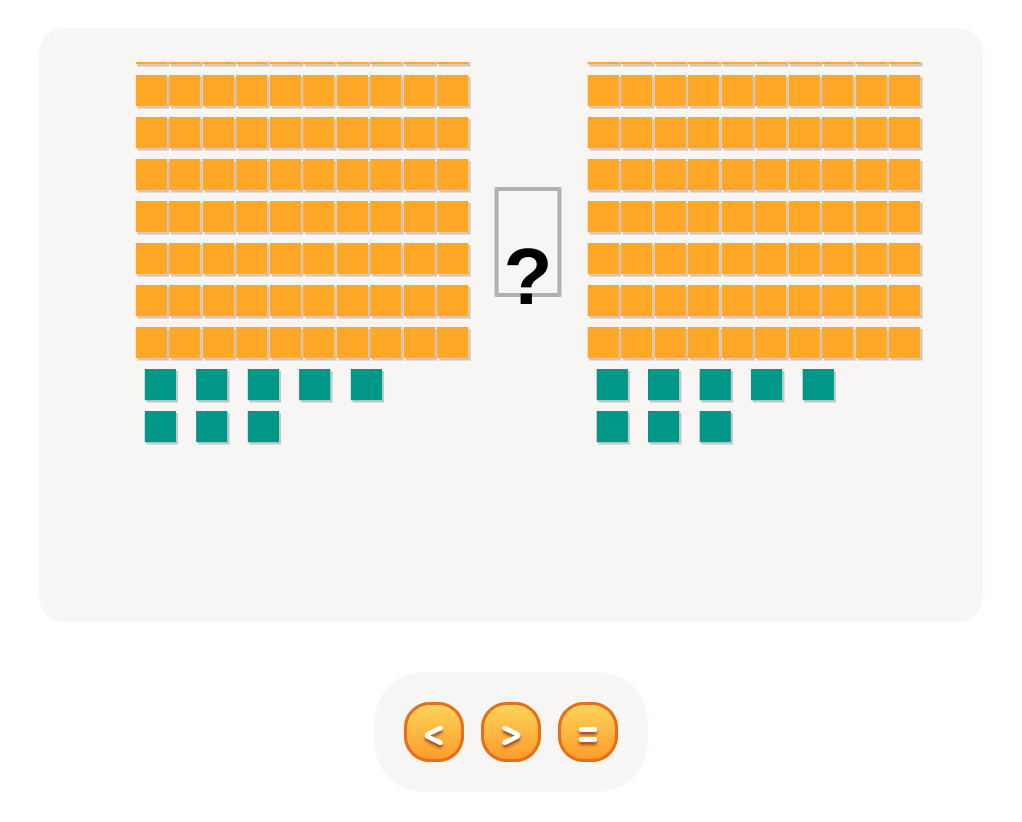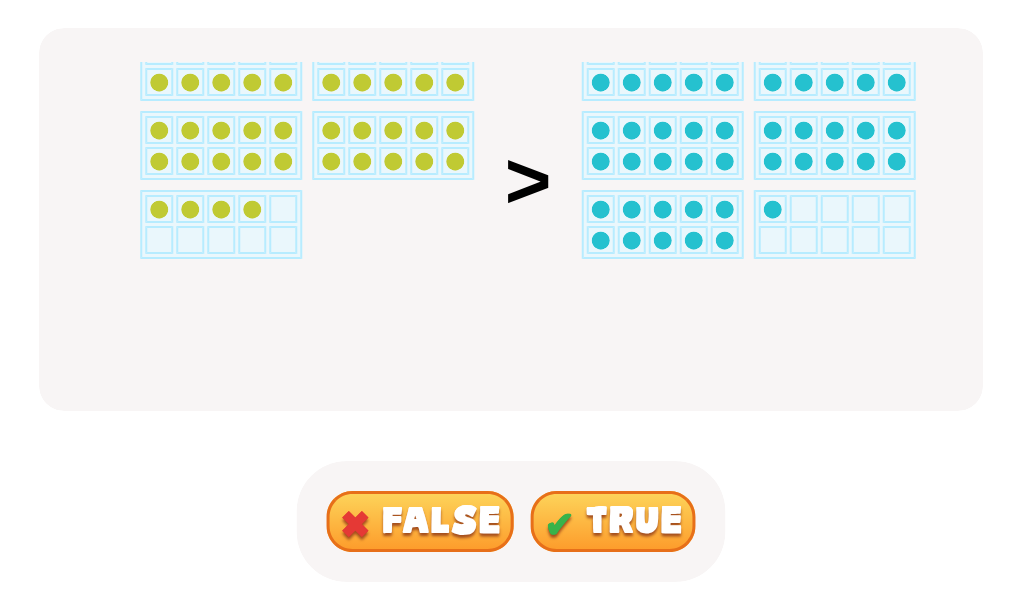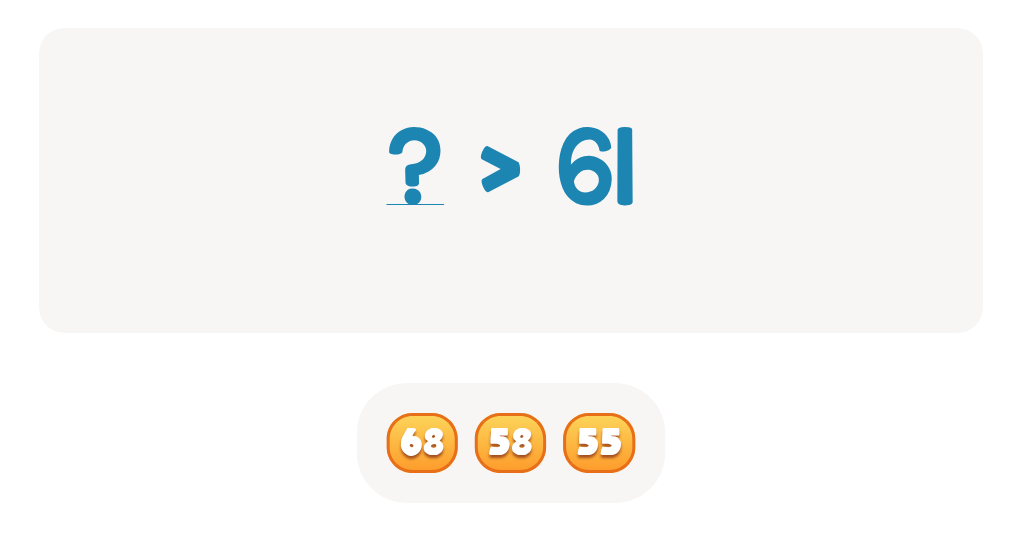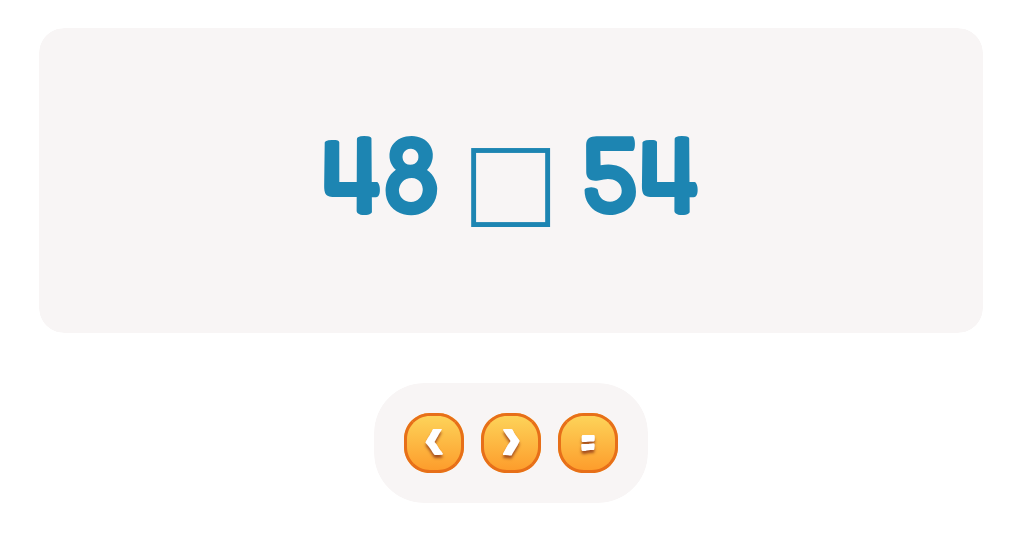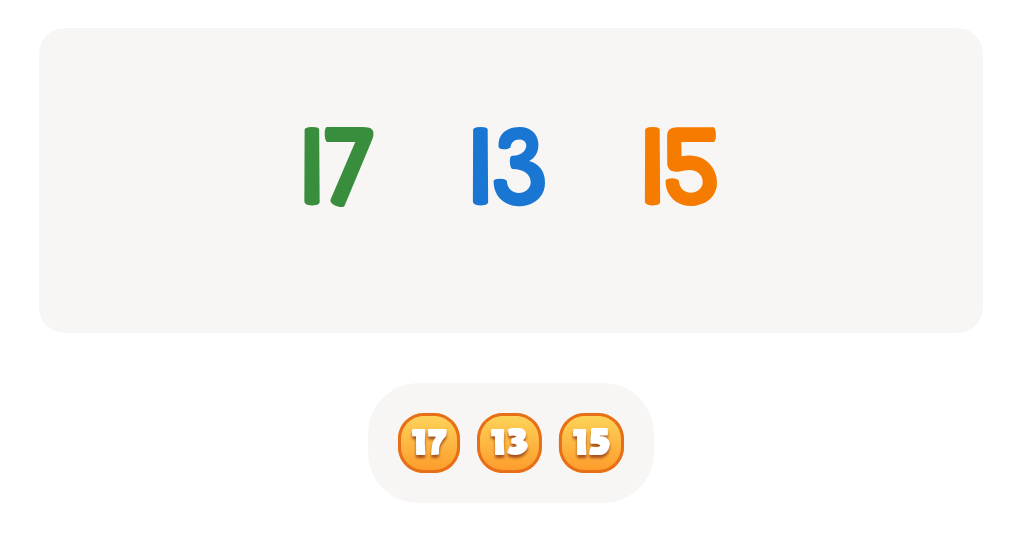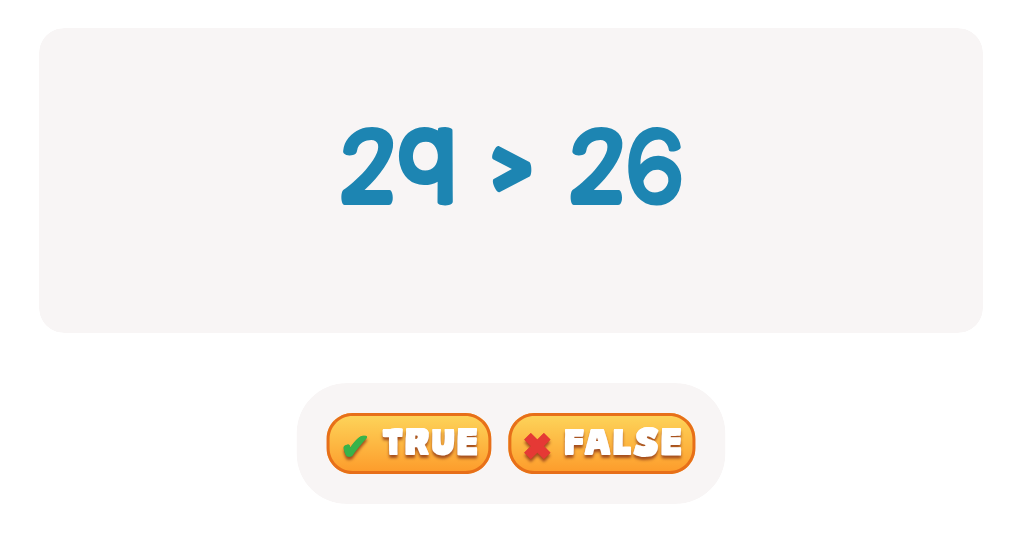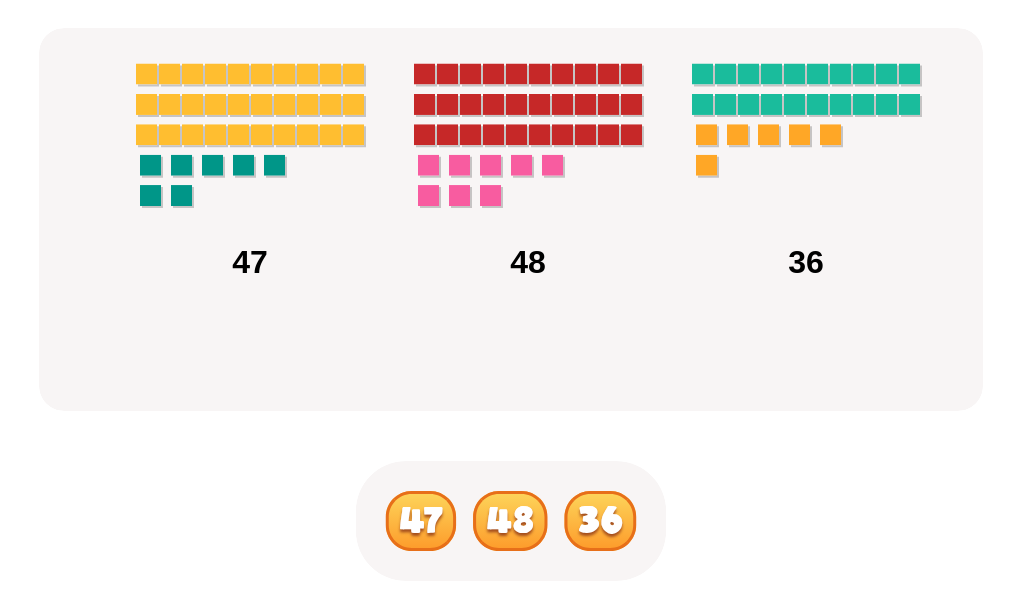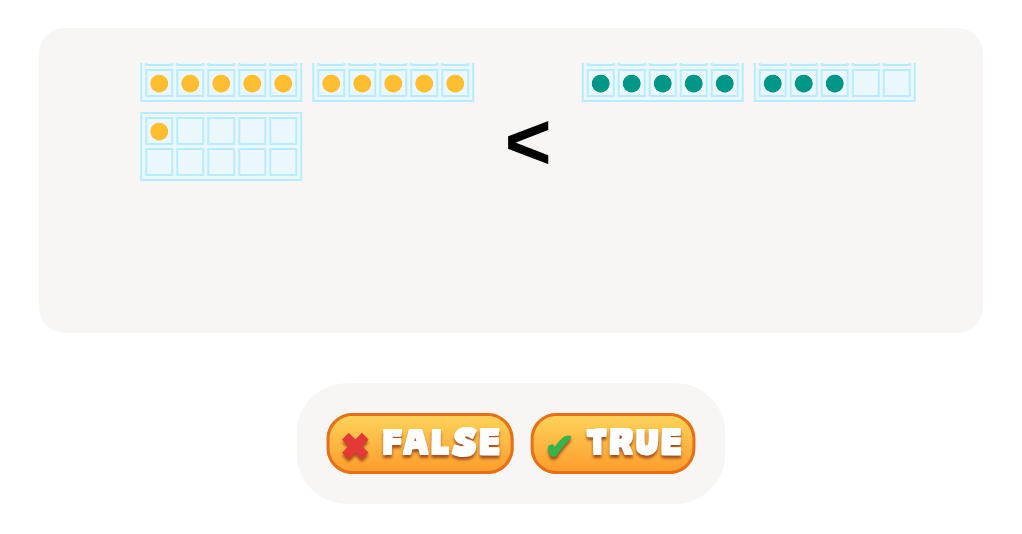Basic Math Skills Comparing Numbers Worksheets for Ages 7-9
6 filtered results
-
From - To
Enhance your child's mathematics proficiency with our "Basic Math Skills Comparing Numbers Worksheets" designed specifically for ages 7-9. These engaging worksheets are tailored to help young learners master the skill of comparing numbers, fostering both confidence and competence in their math abilities. Packed with colorful graphics and age-appropriate activities, our resources simplify complex concepts, making learning fun! Your child will practice comparing numbers through various exercises, including greater than, less than, and equal to exercises. Perfect for home or classroom use, these worksheets provide essential practice that aligns with educational standards, setting your child on a path to success in their math journey!
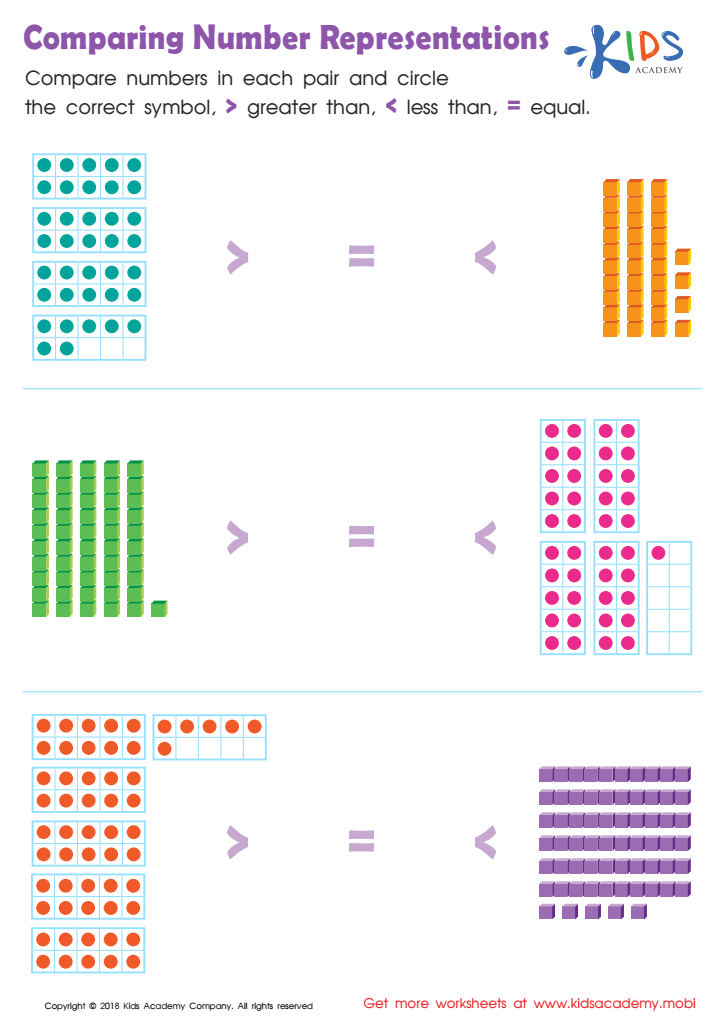

Comparing Number Representations Worksheet
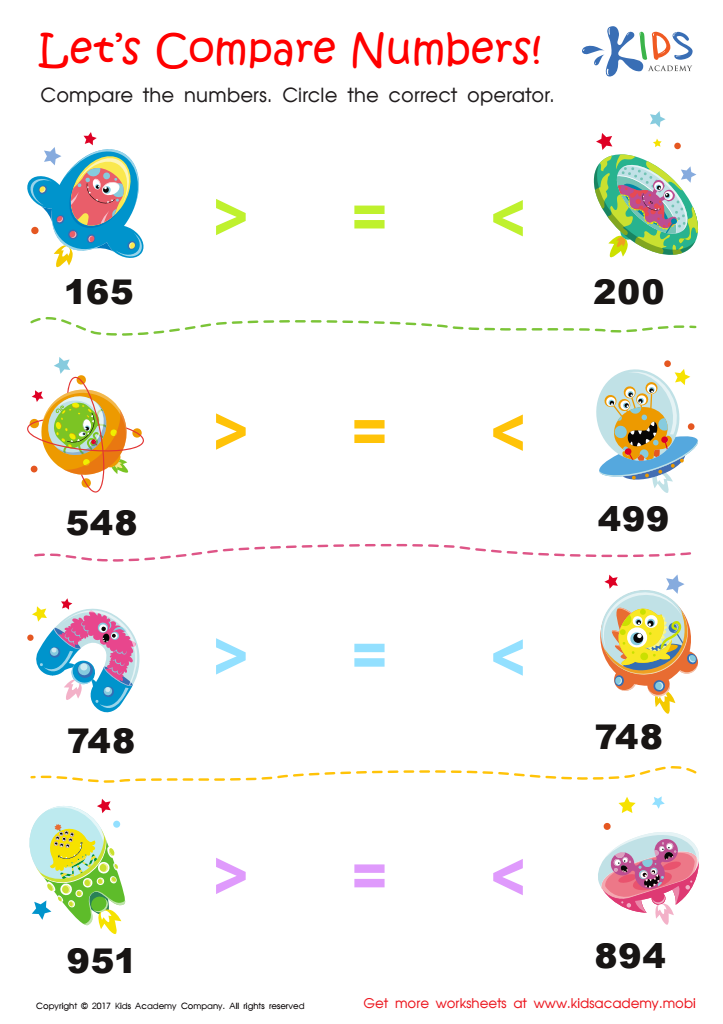

Comparing Numbers Worksheet for 2nd Grade
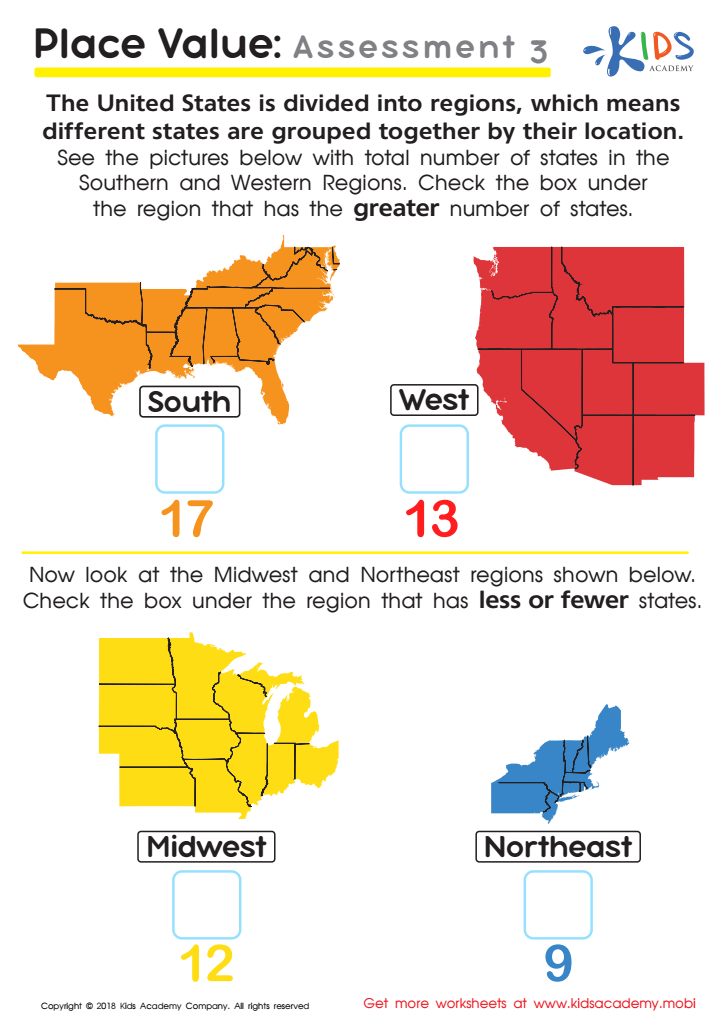

Place Value: Assessment 3 Worksheet
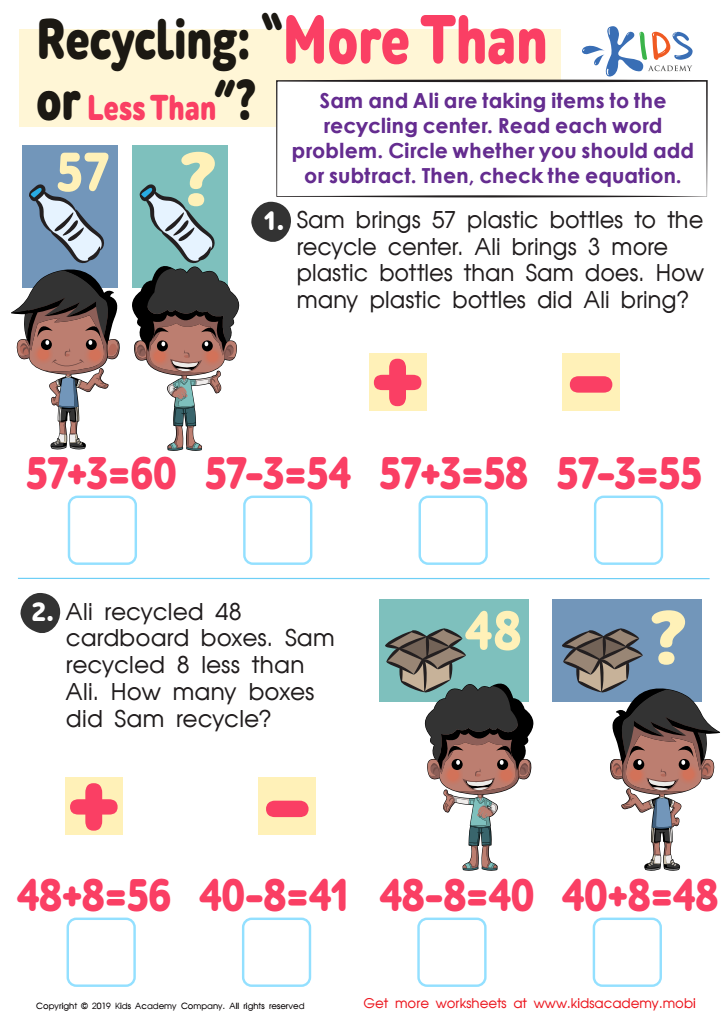

Recycling - More or Less Worksheet
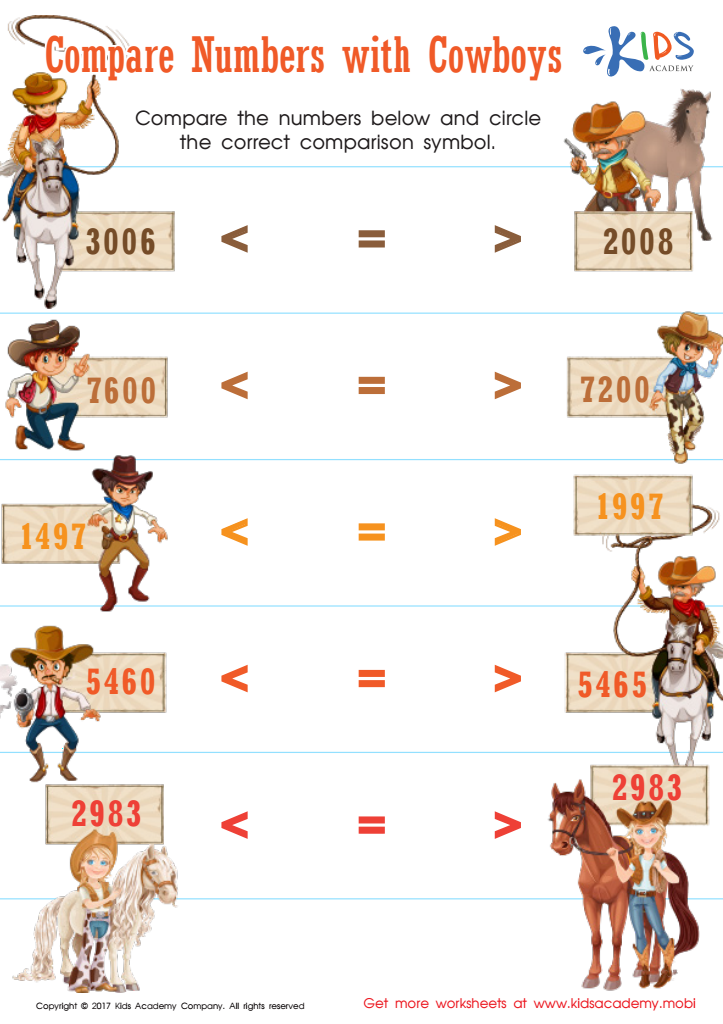

Compare Numbers Worksheet for 3rd Grade
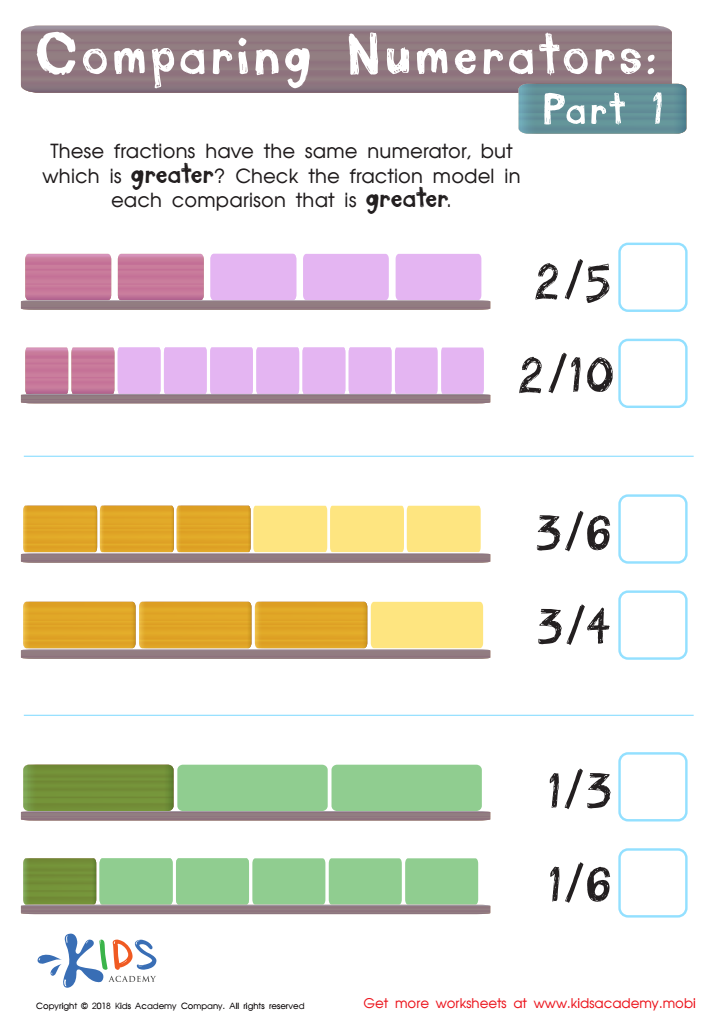

Comparing Numerators Part 1 Worksheet
Basic math skills, such as comparing numbers, are vital for children aged 7-9 as they form the foundation for more advanced mathematical concepts and everyday problem-solving. During this developmental stage, children deepen their understanding of numbers, gaining the ability to identify greater than, less than, and equal to relationships. Mastering these skills fosters critical thinking, as it requires analysis and comparison, enhancing cognitive development.
Understanding how to compare numbers enables children to tackle various tasks, from budgeting pocket money to managing time. Moreover, it instills confidence in their math abilities, preparing them for future academic challenges. As they engage with real-world situations—like measuring ingredients for a recipe or understanding time intervals—these basic skills become essential.
Parents and teachers should prioritize the development of these skills not only to facilitate academic success but also to promote a sense of achievement and curiosity in math. By integrating fun, relatable activities and games into learning, adults can make math engaging and relevant. Support in this area can significantly influence a child’s attitude towards math, ultimately contributing to a lifelong appreciation for the subject and its applications in daily life. A solid foundation in comparing numbers shapes future learners who are competent and confident in mathematics.
 Assign to My Students
Assign to My Students
